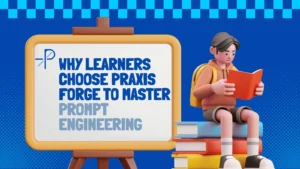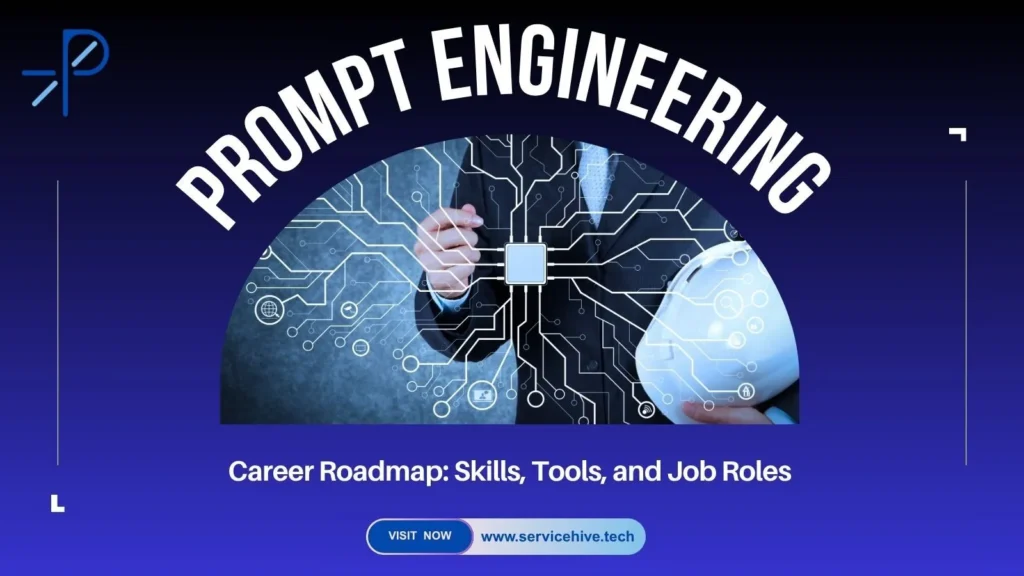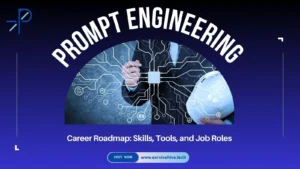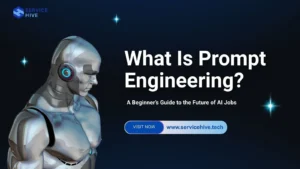
Why Learners Choose Praxis Forge to Master Prompt Engineering
Why Learners Choose Praxis Forge to Master Prompt Engineering Introduction Prompt Engineering has become one of the most in-demand AI

Table of Contents
The world of artificial intelligence (AI) is moving faster than ever, and Prompt Engineering is emerging as one of the most in-demand skills of this decade. As AI models like ChatGPT, Claude, and Gemini transform industries, professionals who can “communicate” effectively with these models are becoming invaluable.
But what does a career in Prompt Engineering look like? What skills, tools, and job roles should you explore to succeed? Let’s break it down step by step.
Prompt Engineering is the art and science of crafting inputs (prompts) that guide AI models to produce useful, accurate, and creative outputs. In simple terms, prompt engineers translate human intent into machine-understandable language.
According to a Harvard Business Review article, prompt engineering is becoming a core competency in AI-driven organizations — a blend of creativity, logic, and technical skill.
AI models are powerful, but they’re only as good as the prompts they receive. A skilled prompt engineer can drastically improve model performance, saving time, cost, and resources.
Industries like marketing, healthcare, education, and software development are already using prompt engineering to automate workflows, generate content, and enhance decision-making.
As per McKinsey’s AI report, companies leveraging AI efficiently are achieving up to 40% higher productivity — much of which depends on prompt design.
To succeed in this field, you’ll need a mix of technical, creative, and analytical skills.
|
To perform efficiently, prompt engineers rely on a toolkit of AI and productivity platforms.
Explore the Lang Chain documentation for in-depth learning.
Prompt Engineering is not limited to one job title — it spans across several domains.
|
See Indeed’s AI Job Report for emerging prompt-related roles.
Prompt Engineers are among the highest-paid AI professionals in 2025.
Companies in FinTech, EdTech, and AI startups are hiring aggressively as they seek individuals who can make AI tools more accurate and usable.
At Praxis Forge, we don’t just teach you “what” prompt engineering is — we teach you how to apply it in real-world business scenarios.
Our Prompt Engineering Mastery Track includes:
Explore Praxis Forge’s Prompt Engineering Program
Prompt Engineering is more than a trending buzzword — it’s a career-defining opportunity for those ready to bridge the gap between humans and AI.
By mastering the right skills, tools, and roles, and learning through applied platforms like Praxis Forge, you can be at the forefront of the next AI revolution.
FAQs
Q1. Do I need to know coding to become a prompt engineer?
Not necessarily. While coding helps, many prompt engineers come from non-technical backgrounds and focus on creativity and language precision.
Q2. What industries hire prompt engineers?
Industries like tech, marketing, finance, healthcare, and EdTech are hiring AI prompt professionals.
Q3. How long does it take to become job-ready?
With focused learning and guided mentorship, you can become job-ready in 3–6 months.
Q4. What makes Praxis Forge different?
Praxis Forge combines practical learning, mentorship, and real-world AI applications — unlike generic online courses focused only on theory.

Why Learners Choose Praxis Forge to Master Prompt Engineering Introduction Prompt Engineering has become one of the most in-demand AI

Prompt Engineering Career Roadmap: Skills Tools and Job Roles Table of Contents Introduction What Is Prompt Engineering? Why Prompt Engineering

What Is Prompt Engineering? A Beginner’s Guide to the Future of AI Jobs Artificial Intelligence (AI) is transforming the way

Python vs JavaScript: Which Language Should You Learn First? Introduction Choosing your first programming language can shape your entire tech

How Praxis Forge Teaches Prompt Engineering Differently from Other Platforms Table of Contents What Is Prompt Engineering and Why It

Praxis Forge vs Generic Online Courses: Which One Really Gets You Hired? Table of Contents The Problem with Generic Online